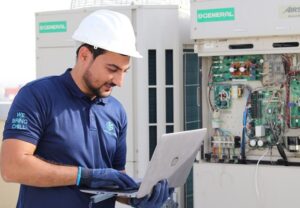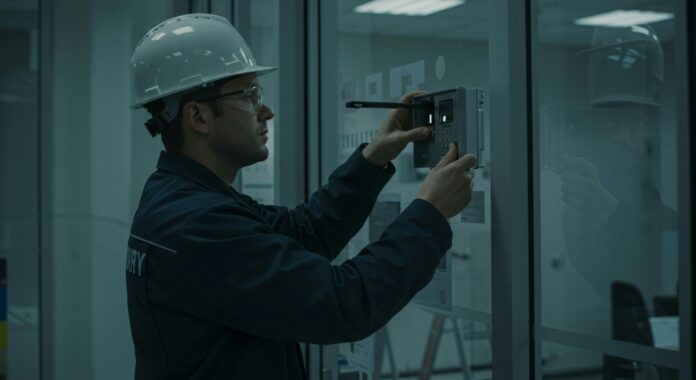When it comes to maintaining a comfortable indoor environment, your air conditioning system does much more than just cool the air—it circulates that air through an intricate network of ducts. These ducts are crucial for distributing cooled or heated air throughout your home or office. Unfortunately, they often go unnoticed until problems arise. Regular ductwork inspections, however, are key to ensuring your HVAC system runs efficiently and reliably, especially if you rely on a split AC service or centralized AC service setup.

Enhancing Energy Efficiency
One of the primary benefits of regular duct inspections is improved energy efficiency. Over time, ductwork can develop leaks, cracks, or disconnected joints. These issues cause conditioned air to escape before it reaches the intended rooms, forcing your air conditioning system to work harder. Whether you’re using a split AC or a traditional HVAC system, this energy loss results in higher utility bills and more wear and tear on your unit.
By identifying and sealing leaks early, a professional AC service can restore the system’s efficiency, reduce energy costs, and extend the lifespan of your equipment.
Ensuring Consistent Indoor Comfort
Airflow inconsistencies are a common sign of ductwork issues. If some rooms in your home feel warmer or cooler than others, or if the airflow seems weak, the problem may lie within the ducts. Blockages from dust buildup, pest infestations, or collapsed duct sections can disrupt even distribution.
Routine inspections help detect these problems early, allowing your technician to make adjustments that ensure your entire space remains comfortable year-round. This is particularly important for homes with split AC systems, where airflow needs to be precisely balanced between different zones.
Improving Indoor Air Quality
The condition of your ductwork significantly affects indoor air quality. Dust, allergens, mold spores, and even small animals can make their way into ducts that haven’t been properly maintained. These contaminants are then circulated throughout your home every time the AC runs.
Regular duct inspections, especially when combined with a full AC service, help keep your system clean and your indoor air healthier. A professional can spot signs of mold growth, accumulated dust, or animal activity and recommend appropriate cleaning or repairs.
Preventing Major Repairs and Breakdowns
Routine inspections are an excellent way to catch small issues before they turn into costly repairs. For example, if a duct becomes partially detached or severely blocked, your air conditioner may be forced to work beyond its capacity, which can lead to compressor failure or other mechanical problems.
Recognizing and addressing minor duct issues early on can help you avoid many common problems with air conditioning systems, such as short cycling, frozen evaporator coils, and overheating. It’s much more cost-effective to invest in periodic check-ups than to face an unexpected system breakdown during a heatwave.
Supporting Optimal Performance for Split AC Systems
Split AC service requires a special focus on the connection between indoor units and outdoor condensers. Ducts—if present—must be inspected to ensure they’re properly sealed and insulated. In many cases, split systems use minimal or no ductwork, but where ducted versions are used, their condition directly influences system efficiency.
Regular inspections ensure your split AC is functioning at peak performance, keeping operating costs low and maximizing comfort.
Final Thoughts
Air conditioning systems are a major investment, and like any other home appliance, they need regular attention. Ductwork, while hidden behind walls and ceilings, plays a critical role in how well your AC performs. By scheduling regular duct inspections as part of your ongoing AC service, you protect that investment, reduce your energy consumption, and enjoy a more comfortable, healthier indoor environment.
Don’t wait until your system starts showing signs of trouble. Preventative care today can save you from the hassle of dealing with common problems with air conditioning systems tomorrow.
